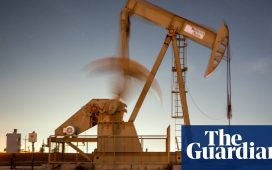British Steel is closing the coking ovens at its Scunthorpe works with the loss of 260 jobs, as the UK steel industry struggles amid high energy prices and the need to invest heavily in lower-carbon technologies.
The company’s owner, China’s Jingye Group, said the move was partly “to overcome global economic challenges” and also due to £190m in extra costs last year from higher energy bills and carbon credits.
British Steel’s chief executive, Xifeng Han, said: “Jingye is committed to our long-term future but decarbonisation is a major challenge for our business and, like most companies, we’re facing significant challenges because of the economic slowdown, rising inflation and exceptionally high energy prices.”
Unions representing the steelworkers raised the prospect of industrial action in an effort to protect jobs. Unite’s national officer, Linda McCulloch, said: “Unite will pursue every avenue, including industrial action, to defend members’ jobs at British Steel.”
Alun Davies, the national officer at Community, another union, said: “We will not accept redundancies and nothing is off the table when it comes to protecting our members’ jobs.”
British Steel informed workers of their plans, which would be subject to a consultation, on Wednesday morning. The closure could take place by the end of this year, although the exact timing was unclear, a source with knowledge of the situation said.
Steelworks’ coking ovens are used to bake coal at 1,100C for 18 hours to produce coke, the crucial fuel used in a blast furnace. The unions have said the company has not yet presented any details of where it would source coke in the future, although it would almost certainly mean the blast furnaces would be dependent on imports. That has heightened fears about the viability of the plant, where the bulk of British Steel’s 4,000 workers are based.
The redundancies are likely to raise pressure in talks between the UK government and British Steel and Tata Steel, the operators of Britain’s blast furnaces at Scunthorpe in Lincolnshire and Port Talbot in south Wales respectively, over funding worth £300m apiece to help them upgrade to electric arc furnaces, which could use zero-emissions electricity.
Both companies have indicated that those subsidies would not meet the costs of upgrades, which could run into billions of pounds.
However, the companies are also struggling with shorter-term issues – British Steel in particular – including energy prices that the lobby group UK Steel says are higher than those paid by subsidised rivals in countries such as Germany and France. Several leading economies, including the UK, are also facing the prospect of recession or slow growth.
Jonathan Reynolds, the shadow business secretary, said it was “worrying news for our steelworkers” and reiterated the Labour party’s pledge to invest in green steel production.
He said: “Steel is the bedrock of many communities across the UK. It is the foundation our manufacturing sector is built on, crucial to any net zero ambition and the beating heart of our sovereign capability.”
after newsletter promotion
British Steel was bought by Jingye in 2020 after the government temporarily propped it up when it went bust under its former owners Greybull. It has previously told unions that job cuts at the steelworks in Scunthorpe could be significantly larger. A further 600 to 900 jobs are thought to be under threat across the company’s broader operations as it looks for further cost savings.
Han confirmed the company was considering “other potential cost-saving measures across the business and will announce any further proposed changes in due course”.
The closure of the ovens has raised concerns over the future of some products relied upon by the UK rail industry. A byproduct of the coke ovens, which would not be easily replaceable, is used in the steel in rails, said a source.
The UK steel industry employs 34,500 people directly and supports a further 43,000 in supply chains, according to the trade group UK Steel.










